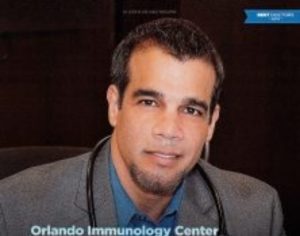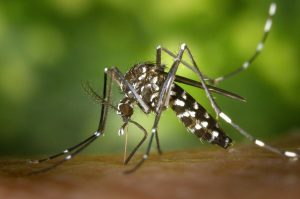8 Ways You Can Protect Your Liver When You’re Living With Hepatitis C
To keep your liver healthy when living with hepatitis C, the most important thing to do is to follow a hepatitis C treatment plan outlined by your hepatitis specialist, which is usually not your primary care doctor, but a board certified doctor with additional training to treat infectious diseases, liver diseases, or gastroenterologist disorders, among a few others. There are a number of treatment options available to slow or even stop damage to the liver and dramatically reduce your risk for hepatitis C-related complications.
In addition to a treatment plan described by your immunology specialist, these eight simple steps can help keep the liver healthy in the battle against hepatitis C:
1. Avoid Alcohol
Alcohol is toxic to the liver, and drinking alcohol is associated with a faster progression of liver disease. For patients with hepatitis C, there is no safe amount of alcohol. There is no measure of how much alcohol is harmful; therefore the best recommendation is not to drink any.
2. Minimize Acetaminophen Use
Acetaminophen (commonly found in over-the-counter pain relievers such as Sudafed) can cause damage on its own, so if the liver is already compromised, the chances of liver damage are higher. Limiting the use of pain medications containing acetaminophen to less than 2,000 milligrams a day can lower the chances of damaging the liver further.
3. Discuss All Medications or Supplements with Your Doctor
Drugs that are metabolized by the liver may cause further harm when the liver is already damaged. Even “natural” supplements can interfere with liver function and cause severe side effects. It’s best to inform your doctor in on all the medications being taken.
4. Maintain a Healthy Weight Through Diet and Exercise
The fat built up in the liver when you’re overweight can contribute to insulin resistance and liver damage from fibrosis, or scarring, of the liver. Exercising regularly and making other lifestyle changes like eating healthy foods and watching your calorie intake can help to protect the liver.
5. Don’t Give Up Coffee
According to preliminary research in a study of 766 participants conducted by the National Institutes of Health, patients who drank three or more cups of coffee per day had a 50 percent lower risk of disease progression.
6. Get Vaccinated
It’s best to be proactive and get tested for other viruses that affect the liver, like hepatitis A and hepatitis B, and get vaccinated against them to reduce the risk for further liver damage.
7. Talk About Sex
It’s not uncommon to have a normal sex life in a monogamous relationship where one partner has chronic hepatitis C. The transmission of hepatitis C through sex is low, and the couple always has the decision to use barrier protection. Using barrier protection is recommended for people having sex with multiple partners to help protect others from hepatitis C and protect themselves against sexually transmitted diseases like HIV, which can accelerate liver damage.
8. Keeping Appointments for Regular Checkups
For chronic hepatitis C, most patients will see their doctor every three to six months, depending on the severity of the illness and the type of treatment being performed. Don’t skip these appointments. Use them as opportunities to evaluate the best care steps as well as overall condition.
To schedule an appointment with one of our board certified specialists call (407) 647-3960 or click here to request an appointment.
More Articles
Dr. DeJesus Recognized by Orlando Magazine
For the 5th consecutive year, Dr. DeJesus has been recognized by his peers in Orlando Magazine for his work as medical director at Orlando Immunology Center. Dr. DeJesus is a graduate from the University of Puerto Rico, School of Medicine. He completed his Internal Medicine training and Infectious Disease fellowship at the Medical College of…
Read MoreJoin OIC at the 2015 AIDS Walk Orlando
Orlando Immunology Center is pleased to announce that we will again be sponsoring a team at this year’s 2015 AIDS Walk Orlando. If you are interested in joining our team or donating to this worthwhile cause, please let us know. Saturday, March 28, 2015 In Florida, 15% of all new HIV infections reported among females…
Read MoreOIC Wins Wave Award for Favorite Local Healthcare Professional
The Orlando Immunology Center (OIC) announced today they have received the Central Florida/Orlando 2015 Watermark Awards for Variety and Excellence (WAVE) Award for favorite local healthcare professional. “We see this as a huge honor and will continue to do everything in our power to help patients from all walks of life be healthy, happy and…
Read MoreDr. DeJesus Recognized by Orlando Magazine
For the 5th consecutive year, Dr. DeJesus has been recognized by his peers in Orlando Magazine for his work as medical director at Orlando Immunology Center. Dr. DeJesus is a graduate from the University of Puerto Rico, School of Medicine. He completed his Internal Medicine training and Infectious Disease fellowship at the Medical College of…
Read MoreJoin OIC at the 2015 AIDS Walk Orlando
Orlando Immunology Center is pleased to announce that we will again be sponsoring a team at this year’s 2015 AIDS Walk Orlando. If you are interested in joining our team or donating to this worthwhile cause, please let us know. Saturday, March 28, 2015 In Florida, 15% of all new HIV infections reported among females…
Read MoreOIC Wins Wave Award for Favorite Local Healthcare Professional
The Orlando Immunology Center (OIC) announced today they have received the Central Florida/Orlando 2015 Watermark Awards for Variety and Excellence (WAVE) Award for favorite local healthcare professional. “We see this as a huge honor and will continue to do everything in our power to help patients from all walks of life be healthy, happy and…
Read MoreDr. DeJesus Presented the Chuck Hummer, III, Visionary Award
Congratulations to Dr. DeJesus for winning the Chuck Hummer, III, Visionary Award presented at this year’s Headdress Ball benefiting Hope and Help Center of Central Florida, Inc. The award is given annually to individuals in the community who have made a difference in the fight against HIV/AIDS. OUR TEAM REQUEST AN APPOINTMENT
Read More8 Ways You Can Protect Your Liver When You’re Living With Hepatitis C
Hepatitis C is the leading cause of severe liver disease and liver cancer, both of which can be fatal. So, what are some of the ways you can protect your liver when you’re living with hepatitis C? To keep your liver healthy when living with hepatitis C, the most important thing to do is to…
Read MoreDr. DeJesus Orlando Sentinel Interview About Actor Charlie Sheen
Dr. Edwin DeJesus was recently interviewed by the Orlando Sentinel about well-known actor Charlie Sheen, confirming that he was HIV-positive. To read the full article click here or click the image below. OUR TEAM REQUEST AN APPOINTMENT
Read MoreDr. Edwin DeJesus Included on Best Doctors 2015 List by Orlando Magazine
Dr. DeJesus was recently voted “Best Doctors 2015” by Orlando Magazine. The Best Doctors in America® List includes the nation’s most respected specialists and outstanding primary care physicians in the nation. These are the doctors that other doctors recognize as the best doctors in their fields. They cannot pay a fee and are not paid…
Read MoreWhat to Expect On Your First STD Screening
Let’s face it. Going for your first STD screening can be a bit nerve-racking, but knowing your status doesn’t have to be scary! To put your mind at ease we provide tips on when you should get tested and what to expect at your first screening. Should I Get Tested? If you experience any symptoms…
Read More5 Things You Should Know About PrEP
PrEP stands for pre-exposure prophylaxis and is a preventative option for people who do not have HIV, but are at a high risk of contracting HIV. The word “prophylaxis” means to prevent or control the spread of an infection or disease. PrEP is a pill that contains two medicines that are also used to…
Read MoreCDC Confirms That The Zika Virus Can Be Sexually Transmitted
If you’ve consumed any piece of news in the last week, you may have heard about an outbreak of the Zika virus. Warnings urged pregnant women to avoid travel to areas with a large number of cases due to possible birth defects. It was originally believed that the Zika virus could only be transmitted from…
Read More










